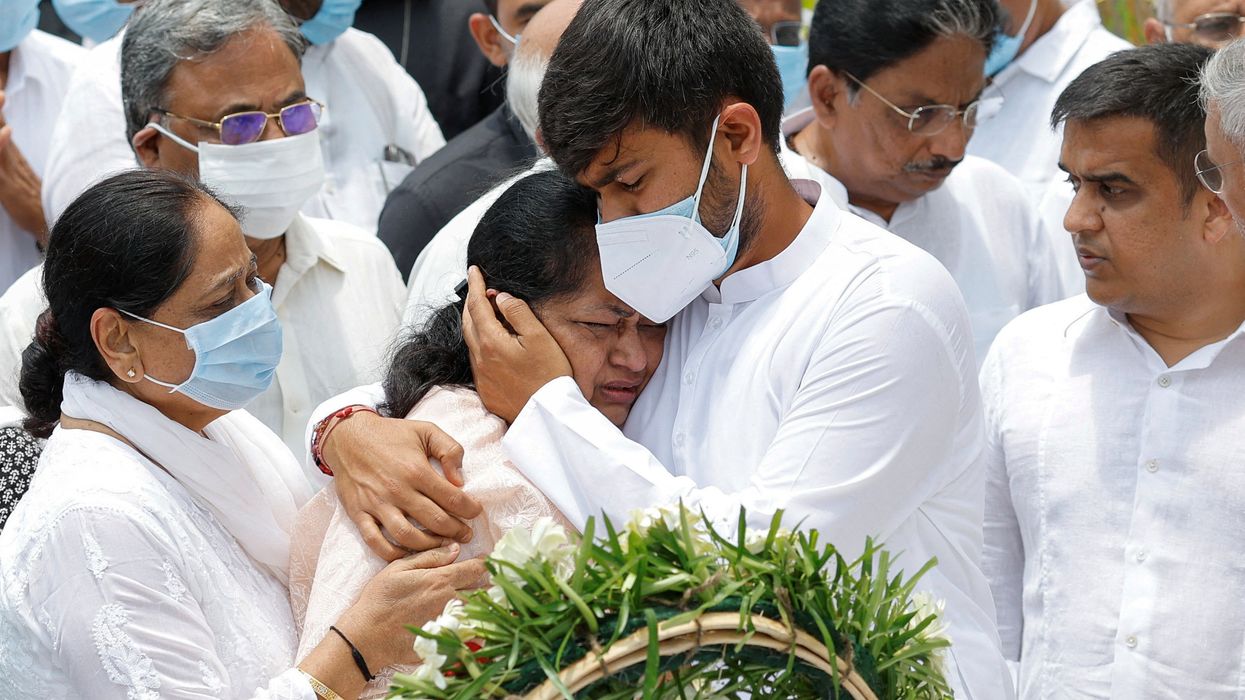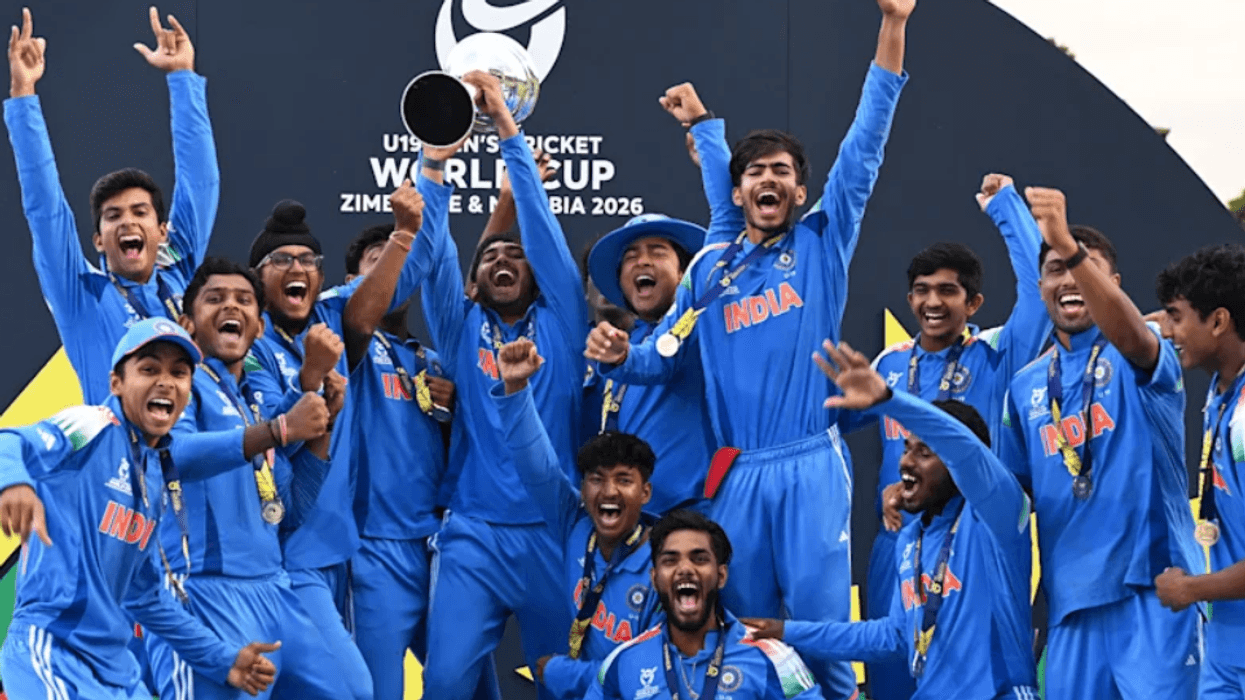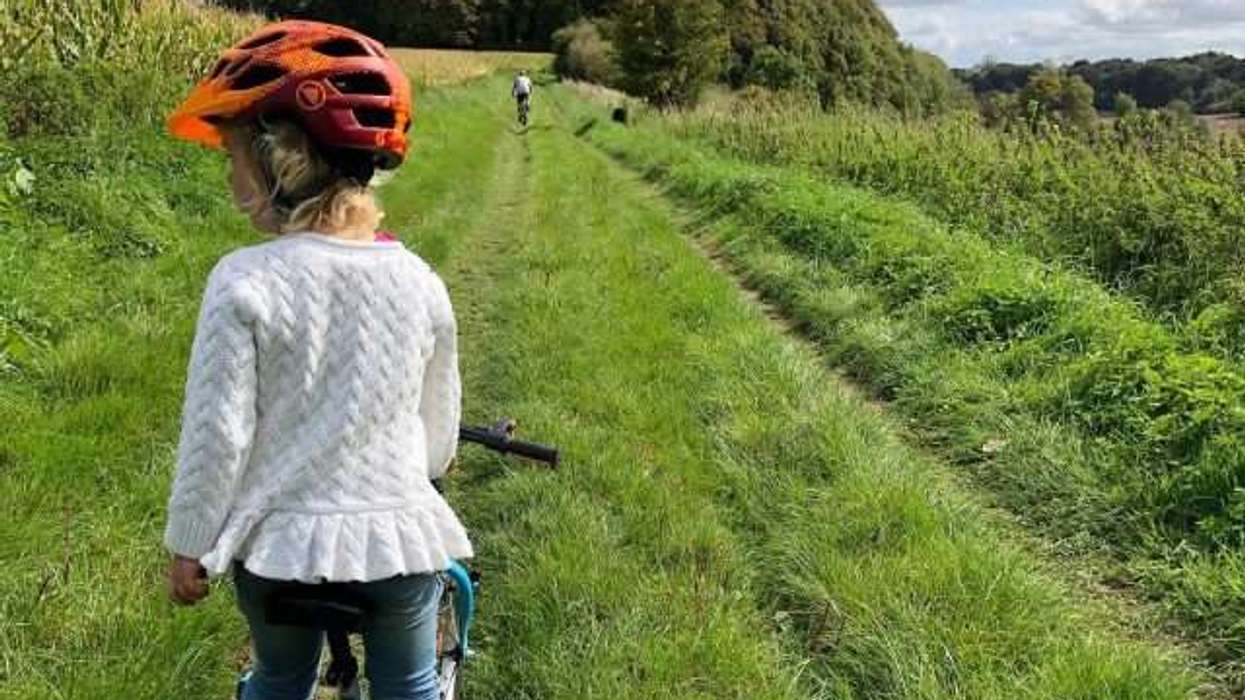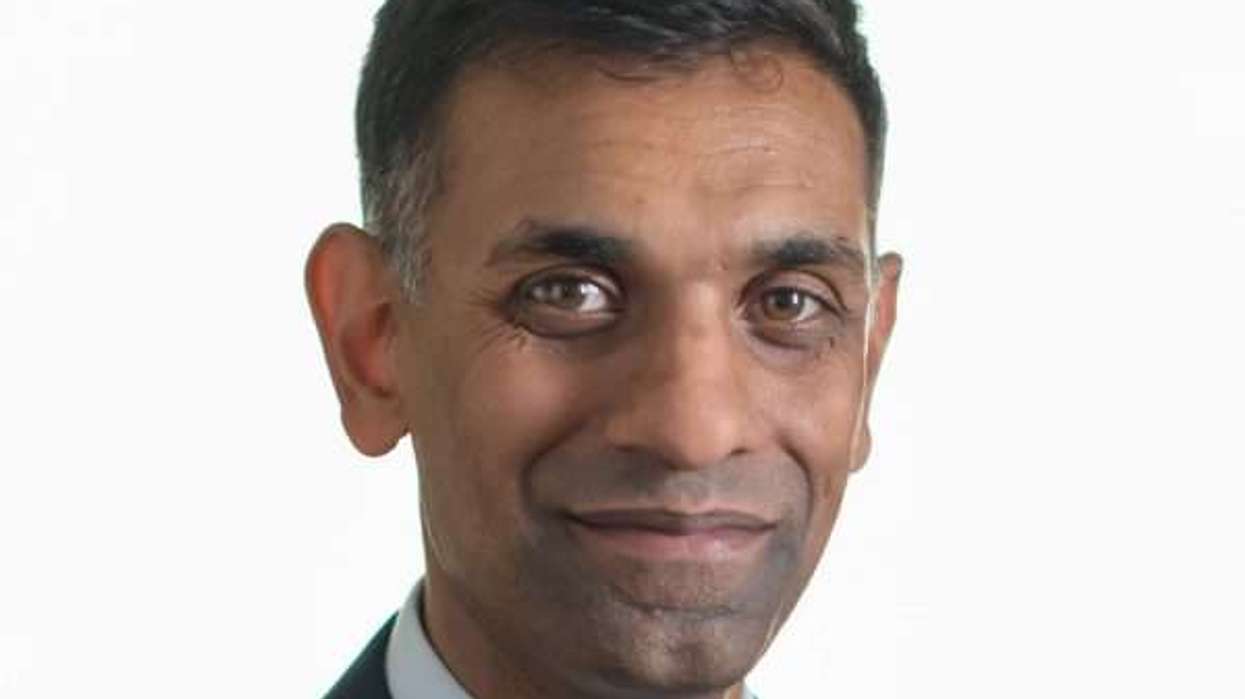AROUND 200 passengers on the Air India flight from Ahmedabad to London Gatwick have been identified, authorities in the Indian state of Gujarat said, as grieving families held the last rites of their loved ones following the crash last Thursday (12).
Hundreds of lives were changed in an instant when the London-bound plane slammed into a residential area of Ahmedabad, killing 241 people on board and at least 38 on the ground.
There was one survivor – British national Viswashkumar Ramesh, from Leicester – and he walked out of the aircraft as it burst into flames.
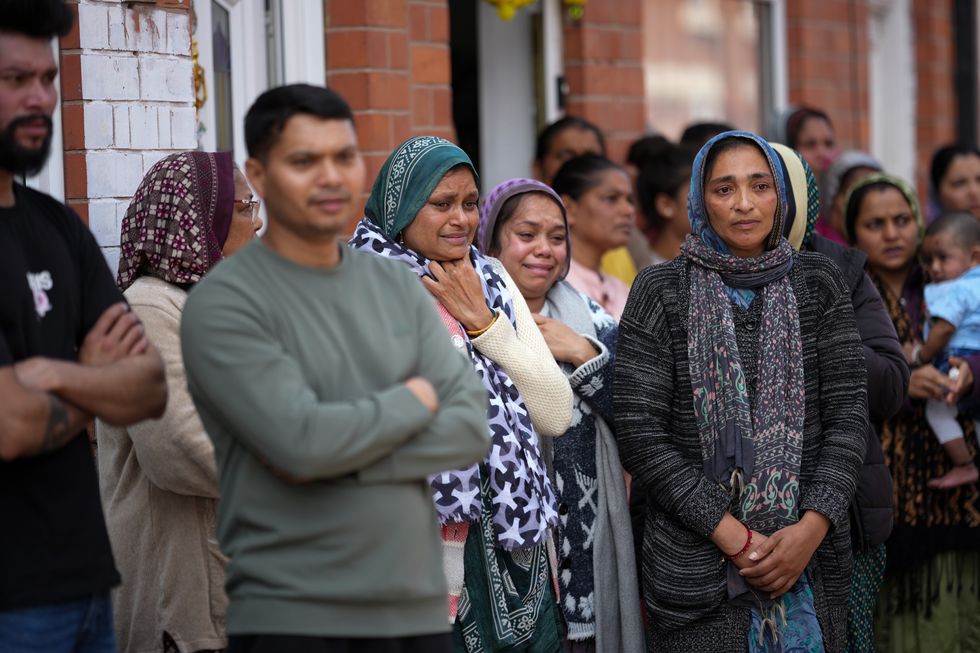
Medical officials at Ahmedabad Civil Hospital said they were working round the clock to identify victims through DNA testing. Rajnish Patel, a doctor at the hospital, said: “This is a meticulous and slow process, so it has to be done meticulously only.”
Dr Rakesh Joshi, the hospital’s medical superintendent, said 163 DNA samples had been matched so far, with 124 bodies handed over to family members from Gujarat, Maharashtra, Bihar, Rajasthan and Diu.
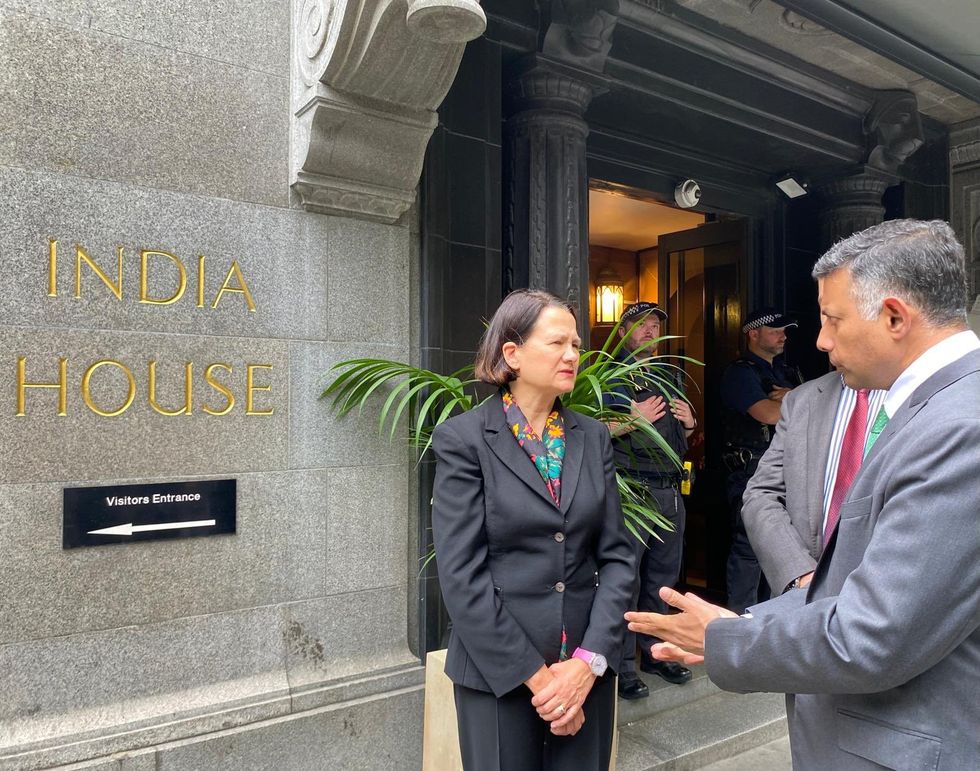
One victim’s relative, who did not want to be identified, said they had been instructed not to open the coffin when they receive it.
Authorities ordered inspections of Air India’s entire Dreamliner fleet, while investigators recovered both black boxes from the wreckage – the flight data recorder and cockpit voice recorder. Aviation minister Ram Mohan Naidu Kinjarapu said decoding these devices would provide “indepth insight” into what caused the tragedy.
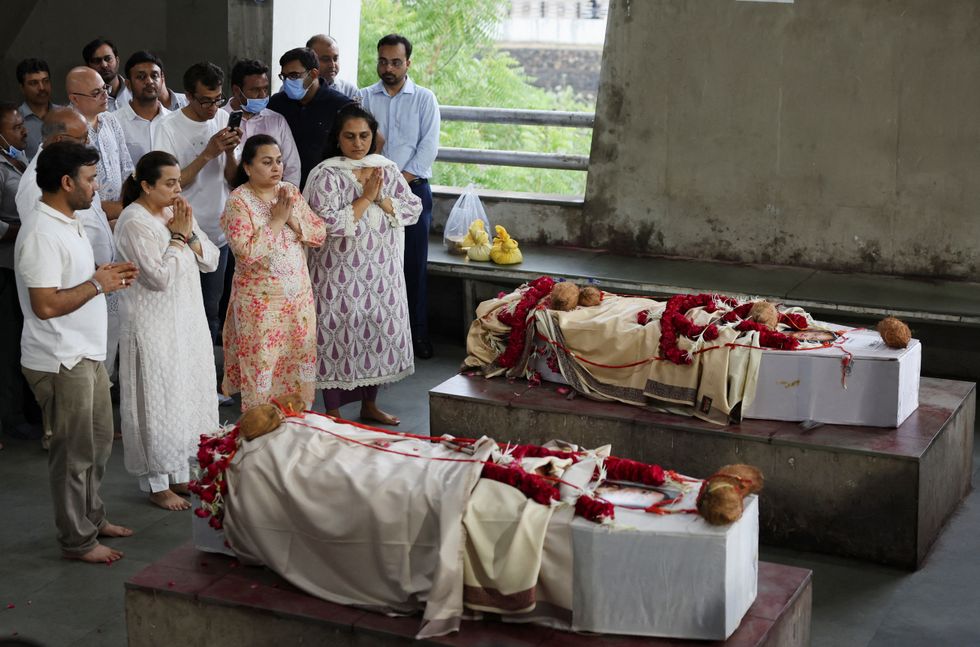
His comments came as India’s aviation watchdog launched a comprehensive investigation into the crash; the Directorate General of Civil Aviation has asked Air India to provide training records for the pilots and the flight dispatcher.
The regulator has also asked flying schools nationwide to conduct strict compliance checks on training procedures, maintenance protocols and pilot licensing requirements.
A separate memo instructed governmentmanaged airports to carry out full-scale emergency training exercises on June 30.
On Monday (16), an Air India Dreamliner returned to Hong Kong airport “shortly after takeoff due to a technical issue” and underwent safety checks.
In Ahmedabad, families continued their anguished wait for news of their loved ones. The passenger manifest showed 169 Indian nationals, 53 British citizens, seven Portuguese, one Canadian, and 12 crew members aboard the illfated flight.
Rinal Christian, whose elder brother was aboard the aircraft, expressed frustration at the delays. “They said it would take 48 hours. But it’s been four days, and we haven’t received any response,” the 23-year-old said. “My brother was the sole breadwinner of the family. So, what happens next?”
Among those identified was Vijay Rupani, a senior member of India’s Bharatiya Janata Party (BJP) and former chief minister of Gujarat. His flag-draped coffin was carried by soldiers in Ahmedabad, accompanied by a portrait draped in flower garlands.
Another victim, 24-year-old Kinal Mistry, had postponed her original flight. Crowds gathered for her funeral procession in Anand district, two hours from Ahmedabad. Dozens of workers in yellow hard hats sifted through the wreckage and as debris clearance continued at the scorched crash site, families demanded explanations. Imtiyaz Ali, still awaiting DNA confirmation of his brother’s identity, voiced the feelings of many relatives: “Next step is to find out the reason for this accident. We need to know.”
Air India chairman N Chandrasekaran told staff on Monday (16) the incident should serve as “a catalyst to build a safer airline.” During a staff meeting, Chandrasekaran, 62, said, “I’ve seen a reasonable number of crises in my career, but this is the most heartbreaking one.
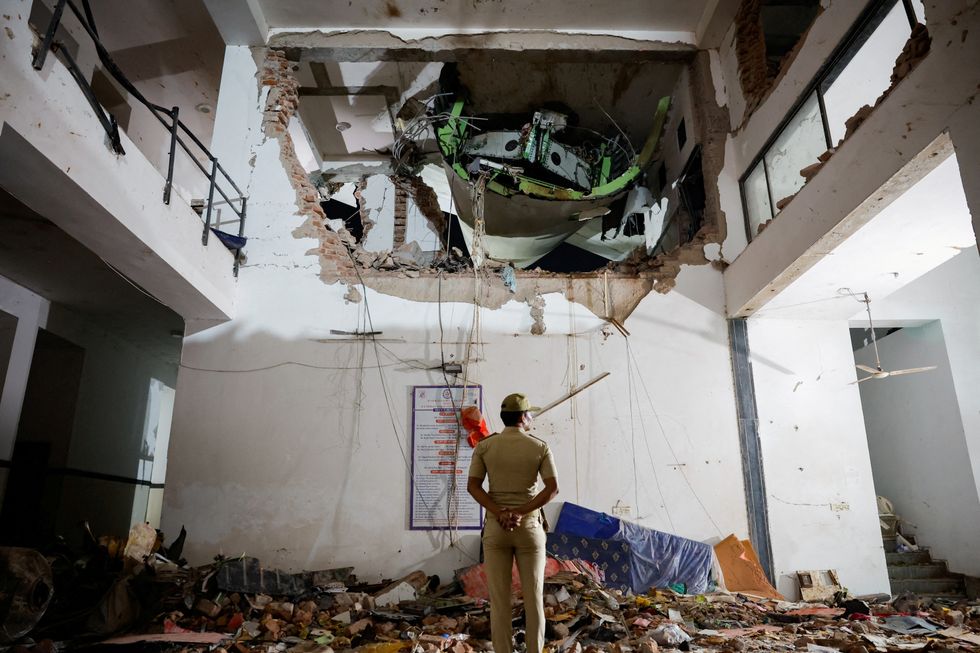
“We need to use this incident as an act of force to build a safer airline.
“We need to wait for the investigation. It’s a complex machine, so a lot of redundancies, checks and balances, certifications, which have been perfected over years and years. Yet this happens, so we will figure out why it happens after the investigation.” India’s prime minister Narendra Modi described the tragedy as “heartbreaking beyond words”, while UK prime minister Sir Keir Starmer called the scenes from the crash “devastating”.
King Charles and Queen Camilla said they were “desperately shocked by the terrible events in Ahmedabad.”
Both Air India and Boeing face fresh challenges following the crash. The Tata Group, which purchased the airline in 2022, has been working to overhaul its operations and safety standards.
Boeing faces renewed scrutiny following a series of safety and production crises. Stephanie Pope, head of Boeing Commercial Airplanes, visited Air India’s headquarters near New Delhi to discuss the incident with airline officials.
Across Britain, local communities came together in mourning as vigils and prayers were held in places of worship and town halls. At a Hindu temple in Harrow last Saturday (14), dozens of community members gathered for prayers, with leaders from Hindu, Sikh, Jain, Muslim, Parsi, Zoroastrian and other faiths offering tributes.
Many attendees had personal connections to victims aboard the Londonbound flight. The head of the Siddhashram Hindu temple, Rajrajeshwar Guruji, who is from Gujarat, likened families’ grief to “waiting and waiting” for loved ones who “are not going to come back again.”
“Some of the members... I have spoken to them, and they don’t have the words,” Guruji said. “They are in shock.”
Among those mourning was Jyotsna Shukla, 66, whose son’s childhood friend died alongside his wife and three children. “I feel very bad because he was so young,” she said before breaking into tears.
Harrow mayor Anjana Patel, who lost a family member in the disaster, reflected on the tragedy’s impact.
“We believe that everyone who is born has to go one day. But I hope nobody goes the way these passengers, as well as the medical students, have gone,” she said, announcing grief counselling services for affected families.
On Monday evening, deputy prime minister Angela Rayner joined a multifaith memorial service at the High Commission of India in central London, stressing the bonds between Britain and India during times of crisis.
“What struck me over the last few days is that the UK and India may be two countries separated by a vast distance, but in the ways that really count we are so very, very close,” Rayner told the gathering. “We mark our bond today in a simple and profound way. We grieve together.” India’s High Commissioner, Vikram Doraiswami, expressed gratitude for British support during this period of “profound grief and abiding shock.”
He noted how the tragedy demonstrated “the suddenness with which life could be extinguished,” affecting not just the 271 victims, but also families and friends.
Monday’s commemorative event coincided with a House of Commons debate on the crash, where foreign office minister Hamish Falconer updated Parliament on assistance efforts for affected British nationals. “With an Indian diaspora about two million strong here in Britain, and with a particularly prominent Gujarati community, we feel the pain of this tragedy together,” Falconer said, acknowledging the “pain and frustration” of families unable to lay loved ones to rest due to ongoing identification processes.
Conservative MP and shadow foreign secretary Priti Patel called it “a dark, sad and traumatic day for India, the UK and all those affected.” British investigators have joined the accident investigation team in India, with Falconer confirming that UK consular staff and family liaison officers are supporting British nationals through the traumatic identification process in Gujarat hospitals.
